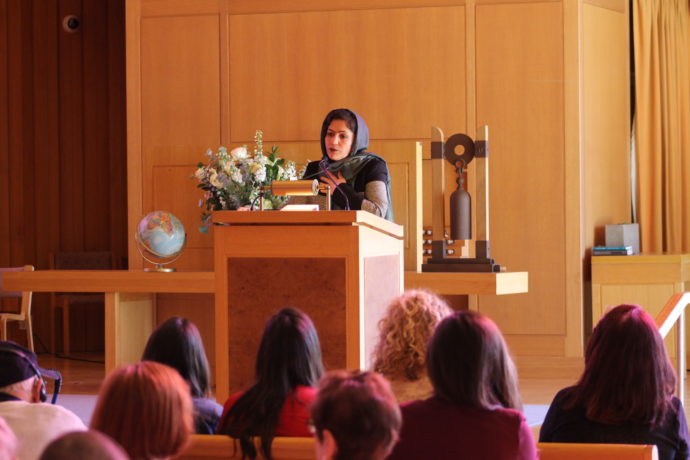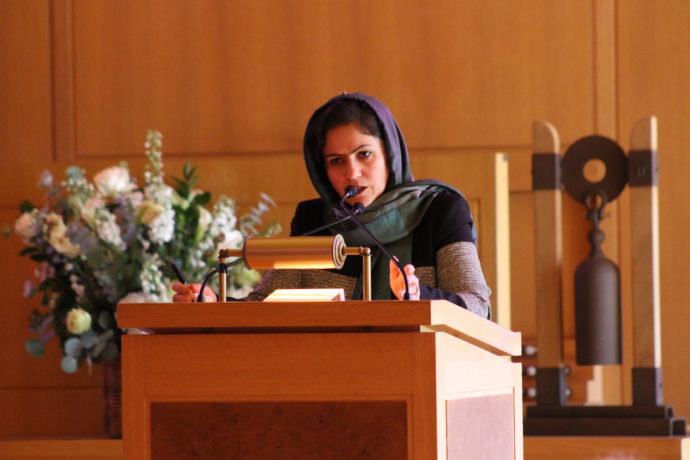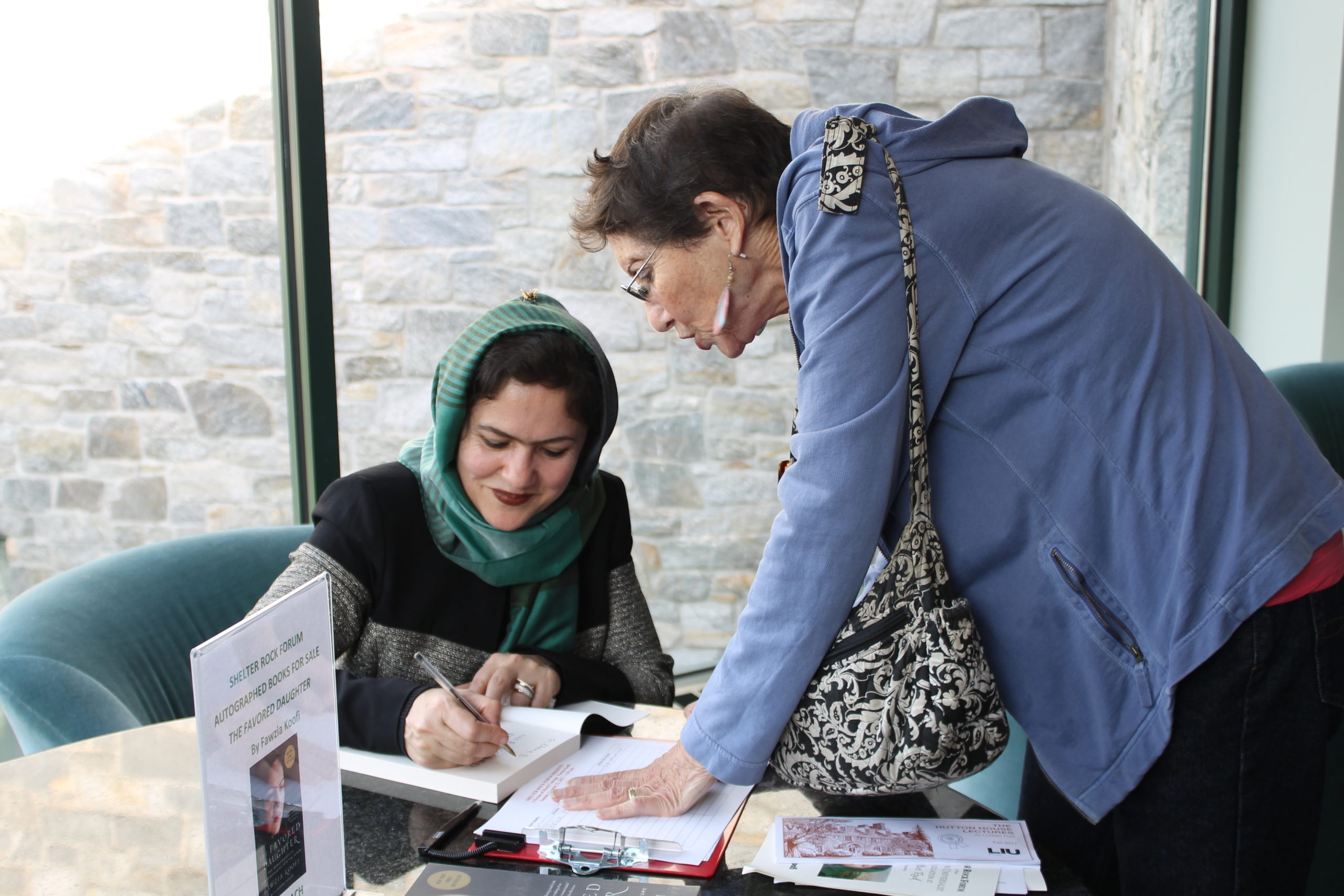Fawzia Koofi was a medical student in Afghanistan when the Taliban took control of the country in 1996.
“Education was banned for all women and girls, including myself, and we were never sure that we would have the opportunity to go back to school, let alone be standing in front of you today,” Koofi said in an emotional speech in Manhasset Sunday.
“We looked at the world, with all its beauties, from the small windows of our houses and the small openings of our burqas, so we never thought we would have the opportunity to explore the world and its beauties.”

Presented by the Shelter Rock Forum, Koofi spoke at Unitarian Universalist Congregation at Shelter Rock about the United States’ involvement in Afghanistan from her perspective as the first female Parliament speaker in Afghanistan.
Koofi said in the 1990s, as many international communities pulled out of Afghanistan, the extremist groups like the Taliban grew. By 2001, Koofi said, the United States was on the verge of recognizing the terrorist group as the official government of Afghanistan.
Under Taliban control, women were viewed as property instead of people, and any minor infraction to the rules could result in a public beating. Koofi described a scene in the streets with a woman in full burqa wearing barely visible white socks who was beaten for disrespecting the white Taliban flag with her clothing.
Her husband, who she had been biking with through the village, denied that she was his wife. Koofi said the treatment of women under that regime is the reason she changed career paths from medical to political.
“As a woman, what I have experienced gave me the reason and the determination and the strength to come to politics and to change the lives, if I could, of other women and girls in my country,” Koofi said.

After the Sept. 11 attacks in the United States, American troops quickly invaded Afghanistan. For many Americans, this was an unpopular decision, but Koofi said it was a saving grace for her people.
“I know for many of you, you were not happy, but for us, for women in Afghanistan, the fact that we could go in the streets of Kabul and breathe without fear of being beaten by Taliban soldiers, or the fear of being put into prison for no reason, was a positive change,” Koofi said.
“Some of you may not be happy with your mission in Afghanistan, but for us, that freedom — we could go without being beaten, we could establish schools, we could have education, we could have women back at work, we could have some dignity. That’s when life came back to Afghanistan.”
Koofi said since the American occupation of Afghanistan, the country has developed a constitution protecting the rights of all people regardless of gender, race or religion, and the country has had six public elections since 2003, three for president and three for Parliamentary seats.
“For the first time in our history, we have a Parliament that has 25 percent women representation, I believe more than the United States,” Koofi said.
Koofi’s father was one of the first in her community to establish a school, but she was the only daughter allowed to get an education. Her sisters went to school once they were married.
The country now has approximately 11 million students in schools and approximately 40 percent of the students are girls.
Former President Barack Obama quoted a letter to American women by Koofi during his 2015 visit to Afghanistan.
“I know that you are not happy, but please remember that your son, your brother, your husband is in Afghanistan for a good cause, and the cause is they lose their life, but they keep a school open,” Koofi said in the letter. “You might not like it, but we want a responsible end to this war.”
During a question and answer session after her speech, Koofi said in Afghanistan’s future, she sees a transformed country.
“I see an Afghanistan where gender and other differences are not the main source of division,” Koofi said. “With the help of the younger generations, Afghanistan will not suffer from discrimination.”



